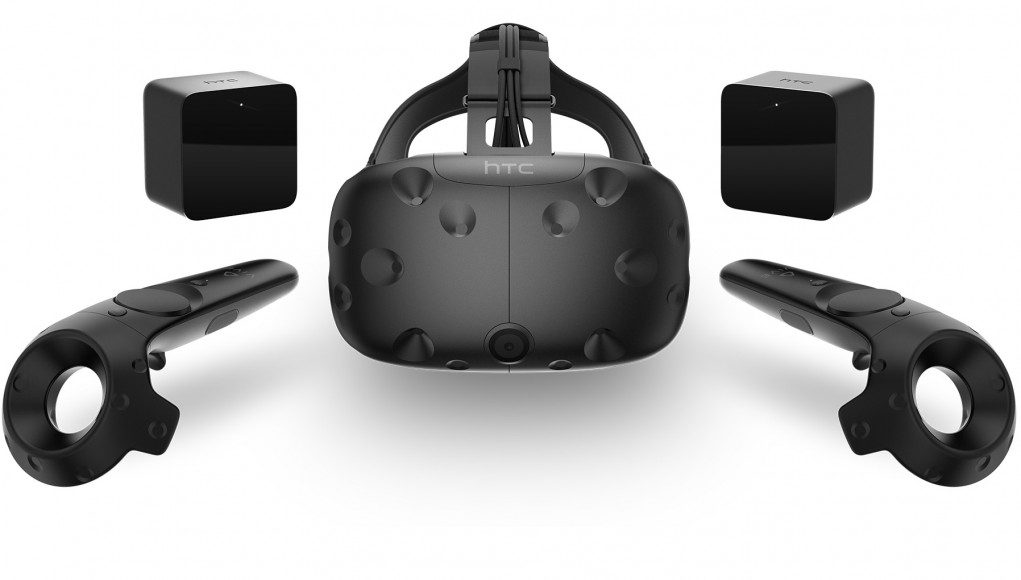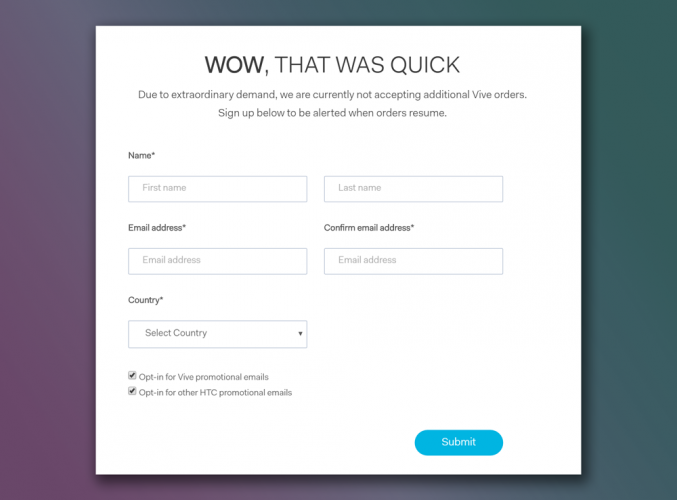The HTC Vive has recently become listed as “out of stock” for U.S. orders. The company says it’s no longer taking orders for the headset in the region “due to extraordinary demand.”
Update (5/14/16, 7:59 PM): HTC has confirmed via Twitter that U.S. Vive orders have resumed. No further explanation was offered as to why the unit was showing as out of stock, though it may have been triggered unintentionally. Original article continues below.
In a curious move, HTC has halted Vive orders to the U.S., citing high demand as the culprit. Attempting to order the headset from the company’s site today reveals an out of stock message and a pop-up which allows customers to opt-in to be notified when shipments resume.
“Due to extraordinary demand, we are currently not accepting additional Vive orders. Sign up below to be alerted when orders resume,” the pop-up reads.
So far only the U.S. order page is showing the Vive as out of stock. It isn’t clear if other regions will be impacted.
It could be reasoned that HTC opted to put a hold on new orders in the U.S. to prevent the Vive backorder list from growing too long, an issue which Oculus has struggled with since launch (not helped by a component shortage which caused additional delay).
Oddly though, while HTC had some bumpiness with shipments early during the Vive’s launch, anecdotal evidence suggests that new orders of the Vive in the U.S. had been shipping out within a week of the order, much earlier than the estimated June shipment date.
It’s quite possible that “extraordinary demand” isn’t the only reason HTC has halted pre-orders, but it’s all we have to go on for now. We’ve reached out to the company for comment.








